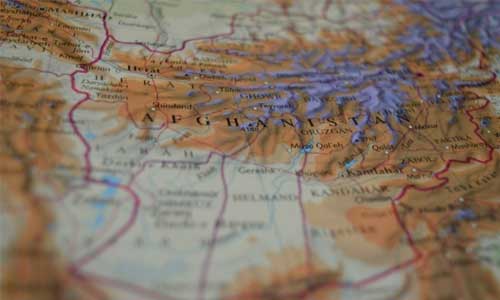The roots of the term Geopolitics can be traced in ancient Greece. Aristotle and Thucydides used geopolitical reasoning in their seminal works that are considered important even in today’s societies. Aristotle depicted the political systems in Greek city states in the light of the climatic conditions, while the Thucydides explained the history of Peloponnesian War through the power politics of Athenian sea power. Similar ideas also prevailed in Europe during the Renaissance; the writings and ideas of Immanuel Kant and Montesquieu were prominent in this regard. In modern social science, this sort of thinking was adopted within research in international relations. German Geographer Friedrich Ratzel conceptualized the theory that the states were like living organisms. His main argument was that the states derived their national power from the land they controlled. However, it was basically Rudolf Kjellén - a Swedish scholar - who coined the term geopolitics. He defined it as ‘the analysis of the interaction between, on the one hand, geographical settings and perspectives and, on the other, political processes…. Both geographical settings and political processes are dynamic, and each influences and is influenced by the other. Geopolitics addresses the consequences of this interaction’.
The concept of geopolitics played a dominant role during the 19th and early 20th century in defining the policies of the political thinkers and political practitioners and even the military strategists. Mahan, Mackinder and Spykman were among the key thinkers who gave their observations and theories based on the same concept. Though the concept was undermined during the Cold War Era, it has gained new momentum after the downfall of Soviet Union and is considered important in determining the nature of international relations in world politics. However, there are certain considerations that have to be made in use of the concept in modern world:
• Geographical conditions must not be seen in a completely deterministic fashion. They basically provide a set of opportunities and constraints, in a sense, a structure independent of agency.
• Though geographical conditions can explain general patterns and long-term processes, understanding specific phenomena that occur in international relations may require keeping in consideration intervening non-geographical factors.
• Vital is to identify the processes and the ways to provide causal mechanisms, based on the role of geography in order to show that geography matters.
• Modern technological inventions and interventions must be seen in light of the geographical realities and their importance must be seen in international politics in the same perspective.
Mahan’s Theory of Sea Power:
Alfred Thaver Mahan believed that war and change in world politics had their roots in great power competitions, wherein security, prosperity, and above all leadership stood paramount. His conclusion was that the great commercial seafaring states would achieve a dominant and determining role in international arena because of the fortunes accumulated through trade. Thus, for Mahan, it was the sea power that determined the national greatness in the world politics.
Mahan identified six basic features of a nation that determined its strength in international arena. These included: Geographical Position, particularly access to the main oceans or the length of the coastlines; Physical Features, like natural resources and climate conditions in seas; Size of the Territory, particularly, the length of the coastline and natural harbors determining the safety of the country; Population Size, which must be considered in the ratio population as understood in the navy to the whole population of the country; National Character, which as per Mahan’s theory must prevail in the pursuit of a maritime commercial activity; and The Nature of the Government and Institutions, in light of the policies that consider the natural inclination of the citizens.
Mahan’s theory came to light in his famous book The Influence of Sea Power Upon History 1660-1783, which underlined the European struggle in 17th and 18th century in Europe; particularly, between the Great Britain, and France. He argued that it was the naval superiority of the Great Britain that provided it the potential to control an empire never seen before. He identified several narrow passages or strategic “choke points,” the control of which contributed to Great Britain’s command of the seas.
Mahan’s theory is still of great significance in the analysis and understanding of international relations. The six attributes that he connected to the national power are still significant in the light of naval strength of a country. Moreover, the role of all the seas and the significant choke points determine the nature of relations among many of the key players in international politics. As per Mahan’s theory, it is vital to see how the major powers have always vied and are even now vying to gain control of the important seas of the ocean and major choke points. In the same way, the rising significance of Indian Ocean and the imperative choke points that see the trade of energy resources within the region will dominate the power politics in the region. Hormuz Straits, Straits of Bab-el-Mandeb, Suez Canal and Malacca Straits among others are going to be imperative for the powers like the US, Russia and China to exert their influence over the Indian Ocean and the entire region.
Home » Opinion » Geopolitics and Mahan’s Theory of Sea Power
Geopolitics and Mahan’s Theory of Sea Power
| Sajjad Aasim

